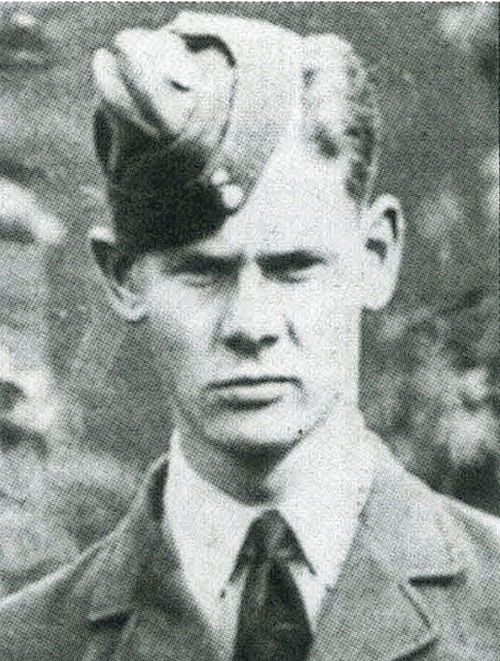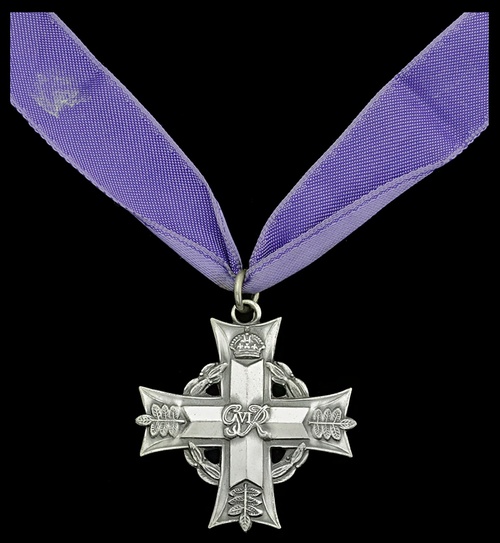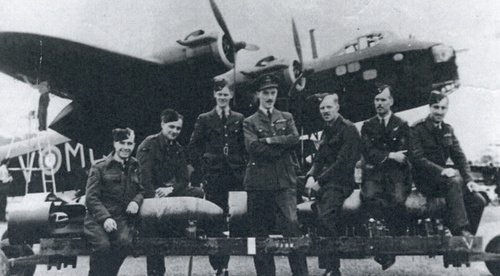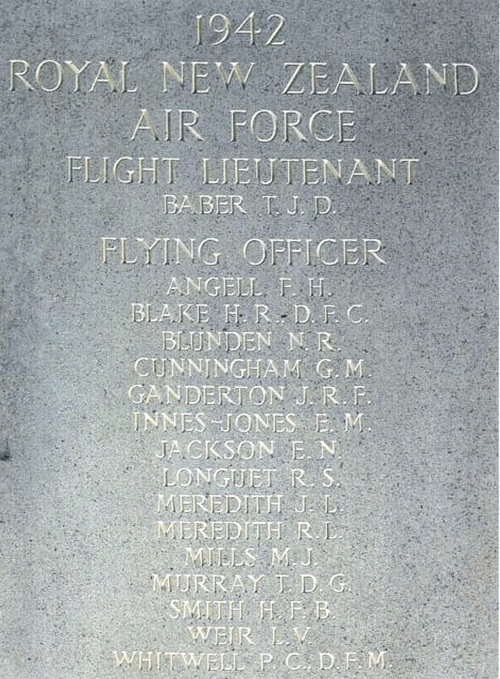Auction: 20001 - Orders, Decorations and Medals - conducted behind closed doors
Lot: 748
(x) A very rare Second World War Immediate D.F.M. group of seven awarded to Flying Officer P. C. 'Pete' Whitwell, Royal New Zealand Air Force
A gallant Air Gunner who had previously flown with No. 600 (City of London) Squadron during the Battle of Britain, Whitwell transferred to Bomber Command and bagged three enemy aircraft whilst completing his first tour with No. 7 Squadron - commissioned and returned for a second tour he would lose his life on a mine-laying operation off the Friesian Islands in November 1942, having just turned 22
Distinguished Flying Medal, G.VI.R. (N.Z. 40613 Sgt. P. C. Whitwell. R.N.Z.A.F.); 1939-45 Star, clasp, Battle of Britain; Air Crew Europe Star; Defence and War Medals 1939-45; New Zealand War Service Medal 1939-45, campaign medals in card box of issue, lid defaced, together with the recipient's New Zealand Memorial Cross, G.VI.R. (NZ40613 F/O. P. C. Whitwell D.F.M.), good very fine (7)
D.F.M. London Gazette 19 December 1941. The original recommendation states:
'In a daylight attack on shipping off Borkum carried out by two Stirlings, Sergeant Whitwell was rear gunner in Sterling W.7449 when these two aircraft were engaged by eight Me109F's. Sergeant Whitwell showed conspicuous coolness and ability when the odds were serious against him. By good shooting, he drove off the first four attacks. On the fifth attack, he seriously damaged one of the enemy aircraft which was observed by four members of the crew to dive steeply away with a considerable quantity of black smoke emanating from the under-surface of the engine cowling. Due to repeated attacks, it was not possible to observe this aircraft down to water level. In the eighth attack, Sergeant Whitwell scored another success when one of the enemy aircraft, having received a well-aimed burst, turned over and dived vertically. This success follows close upon a fine example of technical skill when, on the night of 9th November 1941, during a heavy flak barrage over Hamburg, Sergeant Whitwell changed a barrel in one of his guns. Furthermore, on the night of 14th November 1941, Sergeant Whitwell when attacked by an Me110, withheld his fire until the aircraft had closed to 50 yards range when he shot it down in flames. This outstanding record of ability, tenacity of purpose and courage has proved Sergeant Whitwell to be an airman of outstanding qualities. Sergeant Whitwell was recommended on 21st November for a non-immediate award of the Distinguished Flying Medal.'
Remarks by Station Commander:
Sergeant Whitwell was recommended on 21 November for a non-immediate award of the Distinguished Flying Medal and in view of the further proof of his exceptional skill as an Air Gunner during the daylight operation on 24 November, as detailed above, it is very strongly recommended that the award of the D.F.M. should be made immediate.'
Remarks by the A.O.C.:
'I concur with the above recommendation and strongly support this application for the immediate award of the Distinguished Flying Medal. I am withholding the recommendation for the non-immediate.'
Peter Coulson Whitwell was born on 16 August 1920 at Hartlepool, the son of Reverend Samuel Whitwell. Educated at the King's School, Bruton, Somerset Whitwell joined the the Scots Greys before emigrating to New Zealand in late 1938.
Upon the commencement of the Second World War he enlisted in the Royal New Zealand Artillery and was posted to the 1st Battery at Fort Dorset, Seatoun before joining the Royal New Zealand Air Force on 28 November 1939. Reporting to the Ground Training School at Weraroa, in early 1940, he went to the Air Observers' School at Ohakea in March for a gunnery course. Having qualified he sailed for Britain on 26 April aboard the Rangitiki.
Battle of Britain
Landing in early June Whitwell reported to Uxbridge where he was promoted to Sergeant and was posted to 5 OTU at Aston Down on 17 July. After further training and being awarded his air gunner's badge, Whitwell joined No. 600 (City of London) Squadron at Hornchurch on 18 September 1940. He flew three times before the month was out, including an engagement with the enemy in the early hours of 27 September that left the aircraft damaged. During October he flew another 5 times before the end of October, although the weather curtailed any prolonged engagements. No. 600 was fitted with Beaufighters from 29 November and Whitwell and his fellow Air Gunners were out of a job. Many requested transfers to Bomber Command, Whitwell included and he was posted to 11 OTU at Bassingbourn on 6 February 1941. After crewing-up and converting to Wellingtons he joined No. 7 Squadron at Oakington on 11 May. Soon afterwards the squadron was requipped with Stirlings, the first Squadron in the Royal Air Force.
Having shown remarkable courage during his tour of duties, Whitwell flew 31 sorties and clocked up 157 hours on operations and had the D.F.M. to go with his three 'kills'.
Journey's end
Commissioned Pilot Officer on 27 January 1942 Whitwell was posted to 11 OTU as an instructor but longed for further operational duties. Promoted Flying Officer on 1 September 1942 a few weeks after his 22nd birthday, he was returned to No. 7 Squadron on 10 September 1942 to begin his second tour. His final flight would be from RAF Oakington, Cambridgeshire on 7 November 1942. Taking off at 1659hrs in Stirling W7620, captained by Pilot Officer D. J. Tottman, RNZAF, the 7-man crew were detailed for minelaying operations on 'Nectarines'. It was just before 2000hrs that contact was lost with the crew, crashing into the North Sea off Vlieland, Netherlands. All the crew, including Whitwell, are commemorated upon the Runnymede Memorial.
Note: Just 175 Distinguished Flying Medals were awarded to members of the Royal New Zealand Air Force in the 1939-45 War.
Subject to 5% tax on Hammer Price in addition to 20% VAT on Buyer’s Premium. For more information please view Terms and Conditions for Buyers.
Sold for
£4,800
Starting price
£3800











